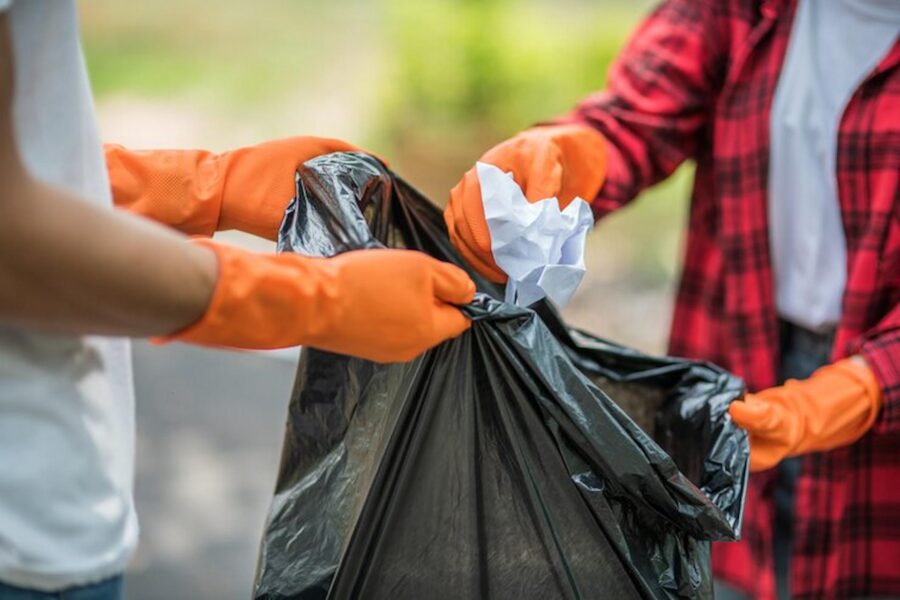Businesses of all sizes are under increasing pressure to operate environmentally responsibly. Managing waste efficiently is a crucial part of this responsibility. Not only does it help companies meet regulatory requirements, but it also reduces costs, improves sustainability, and enhances a company’s reputation. In this blog post, we’ll explore practical ways businesses can efficiently manage their waste and its benefits.
Understanding the Importance of Waste Management
Successful waste management is not only the simple process of taking out garbage; it is also doing that in a way that is the least polluting and recovers the most resources. Proper waste management reduces greenhouse gas emissions, decreases the amount of waste that goes to landfills, and maintains the set local standards of waste restriction. Furthermore, the right plan of action for waste management should allow the elimination of hidden costs, thus reducing the cost of waste disposal.
The Basics of Rubbish Clearance
Businesses will remove the waste they produce, which includes collection, transport, treatment, and disposal of trash. This practice is very easy for small companies with only a tiny amount of waste; however, this may be challenging for big companies, whether in the production or the store industry. There are many types of waste that companies need to deal with, including:
General Waste: Paper, cardboard, and nonrecyclable packaging are the usual sources of disposables.
Recyclable waste: which is the means of reprocessing and reusing a substance, including metals, glasses, and certain plastics.
Hazardous Waste: These materials are dangerous and require very special handling, like chemicals, batteries, and electronic waste.
Organic Waste: Food scraps and other biodegradable materials are examples of these.
Each type of waste needs different processes to be handled so that it can be either correctly disposed of or adequately recycled.
Steps to Efficient Waste Management
Conduct a Waste Audit
Efficient waste management begins with understanding how a business manages its waste and in what quantities it does so. Conducting a waste audit is necessary to find out the main culprit and materials being disgorged. This is the process of looking at the waste streams, finding places to reduce waste, and looking for recycling and reuse opportunities.
Develop a Waste Management Plan
When you see the giant planet in your business, you can go to the next step and start making a waste management plan. The plan should cover how waste will be sorted, stored, collected, and disposed of in your office. It should also include the methods of waste reduction, recycling, and education among the personnel. You may set objectives, such as reducing waste by a certain percentage or increasing recycling rates. These targets will help you put them into action. Engaging in proper rubbish clearance Ealing can be a significant part of this plan, ensuring that waste is handled efficiently and responsibly.
Reduce Waste at the Source
The best and most effective way to manage waste is to start at the very beginning, which is reducing waste at the source. This is done using:
Reviewing Procurement Practices: Favoring suppliers who use minimum packaging and flexible solutions for reusing packages is among the processes we are considering.
Streamlining Operations: Minimising material losses through the automation of paperless transactions is an example of how a company can contribute positively to the environment.
Encouraging Reuse: Carrying out some programs that will inspire customers to bring their shopping bags or containers and get a discount would be one of the ways to do it.
Implement Recycling Programs
Recycling is an essential part of successful waste management. Through a systematic recycling program, companies can spare a substantial amount of their trash from being dumped in landfills. Companies can encourage employees to bring materials to the certified e-waste recycling bins by contacting a recycling centre and purchasing recycling bins. If recycling is in place, a significant amount of a business’s waste can be turned into reusable products.
Properly Manage Hazardous Waste
Businesses that produce hazardous waste must obey strict regulations to ensure that the waste is handled safely. One measure to ensure safe disposal is using appropriate storage containers, clear labelling of hazardous materials, and collaboration with licensed disposal companies. Mismanagement of hazardous waste can not only lead to heavy fines but also have serious environmental consequences.
Work with a Professional Waste Management Service
For most businesses, solving the problem of waste clearance can be done best by teaming up with a waste management company specialising in waste clearance. These companies not only partake in regular waste collection but are also equipped with a host of recycling programs offering services that include ensuring your business’s specific needs are met. By partnering with a professional service, compliance with local regulations is secured, and precious time and budget are saved; hence, companies can focus on their core activities.
Benefits of Efficient Waste Management
Efficient waste management offers numerous benefits to businesses, including
Cost Savings: Reducing waste at the source and recycling can significantly lower disposal costs. In some cases, businesses can even generate revenue by selling recyclable materials.
Regulatory Compliance: Following waste management regulations helps businesses avoid fines and legal issues.
Improved Reputation: Consumers are increasingly favouring businesses that demonstrate environmental responsibility. Efficient waste management can enhance a company’s brand and attract eco-conscious customers.
Sustainability: Proper waste management supports broader sustainability goals by conserving natural resources, reducing pollution, and lowering greenhouse gas emissions.
Conclusion
High-quality litter clear-up is one of the main goals of businesses that want to run their companies in accordance with sustainability and social responsibility. Businesses can become more aware of their waste by conducting waste audits and managing it, throwing away waste at the source, initiating recycling programs, and using professional waste services. This method is not only beneficial to the environment but also brings significant financial and branding advantages.
Integrating effective, sustainable waste management procedures into your business operations is a win-win situation. It is a long-term investment that pays dividends in many ways—from saving money to a stronger corporate image. By being proactive today, businesses can keep saving money by improving the environment and generating more profits and revenues.




